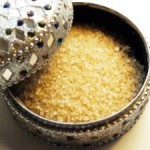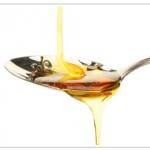Welcome back – A short sharp post this week…
Glucose & fructose are both types of sugar and they are both the ones most often mentioned in a negative health context. Fructose, particularly in the form of High Fructose Corn Syrup, continues to gain a (deservedly in my opinion) reputation in both nutruitional & medical circles.
It has been linked in numerous (and a growing number of) studies with a wide range of preventative illnesses. Obesity, type 2 diabetes, increased whole body inflammation, deranged insulin processing, altered liver function, increased risk of heart disease and is now being considered an adictive substance.
A recent study . namely: Cox CL, et al.Consumption of fructose-sweetened beverages for 10 weeks reduces net fat oxidation and energy expenditure in overweight/obese men and women. (Advance online publication European Journal of Clinical Nutrition on 28 September 2011)
In this study glucose & fructose were lined up head to head for 10 weeks. Overweight and obese men and women were fed glucose or fructose sweetened drinks for this time period. The sugar content was designed to represent 25% of the daily energy requirements of these folk. (If they normally eat 2400 calories a day then the sugar content was 600 calories – about over 150grams.
Whilst there were a whole lot of measurements were taken of the participants the two of real interest to us are: Metabolism after eating (measured fat oxidation) and measuring theiur BMR (basal or ‘at rest’ metabolic rate)
The resulting measurement of these two areas showed that the consumption of high amounts of fructose (let’s face 25% of your daily calroes as fructose, or glucose or any other sugar IS a lit!) led to significant reductions in both measures. Inother words it slowed down the participants metabolisms both after eating (where you would expect in usual circumstances at lease a small spike upwards due to the Thermic effect of food) and at reast. Don’t forget we burn most of our calories at rest.
What was surprising was that these reductions were not seen with the same level of glucose consumption. Based on this it would be correct to assusme that on a gram for gram basis, fructose carries a much larger potential for adding fat to your body than does glucose.
So what do we conclude from this? That glucose is good & fructose is bad? That we should therfore eat glucose laden foods with abandon and at the same time forgo all fruit?
No. The amounts of sugars in this experiment were large and hopefully way above anything you or your loved ones consume. What this does show though is that high amounts of fructose can harm health, and can be viewed as being more damaging than glucose.
So still eat fruit but cut down on if not entirely eleiminate ay processed food with Fructose (especially in the HFCS form) to protect your health & stay a bit leaner.
See you next week.


